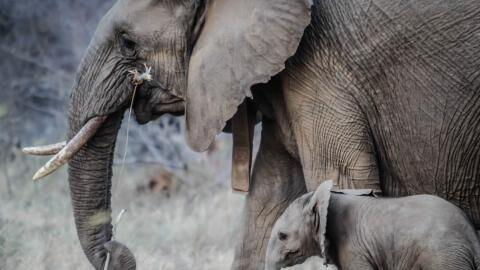A fossilised horseshoe crab brain recently discovered is thought to be 310 million years old. It is one of the oldest fossilised brains discovered by scientists and considered the best preserved by the authors of the study published in the journal Geology.
Discover our latest podcast
This is an exceptional discovery since, according to the scientist—the chances of finding a fossilised brain are about 'one in a million.'
Euproops danae, an extinct horseshoe crab species
The brain belongs to an extinct horseshoe crab species called Euproops danae and was found in Mazon Creek, Illinois, where the geological conditions were right to preserve the animal's soft and delicate tissues.
This discovery provides an opportunity to learn more about the evolution of this arthropod, commonly known as the 'Moluccan crab' or 'horseshoe crab.' Although the species is relatively common, until now there has been little information about the brains of ancient horseshoe crabs.
Lead author Russell Bicknell, a palaeontologist at the University of New England in Maine, told Live Science:
This is the first and only evidence of a brain in a fossilised horseshoe crab.
To the researchers' surprise, this ancient brain, dating from the Carboniferous period, is almost identical to that of a modern horseshoe crab, 'despite 300 million years of evolution.'
A "brain mould
The Mazon Creek deposits, made up of an iron carbonate mineral called siderite, allowed the horseshoe crab corpse to be wrapped and fossilised. The soft tissues of the brain were thus preserved in perfect condition. Russell Bicknell told Live Science:
We have a mould of the brain, not the brain itself.
While the brain tissue has decomposed, it has gradually been replaced by a clay mineral, kaolinite, which has created a faithful mould of the brain. The lead author concluded to the science news site:
If we start looking, we may be lucky enough to find more brain fossils.















